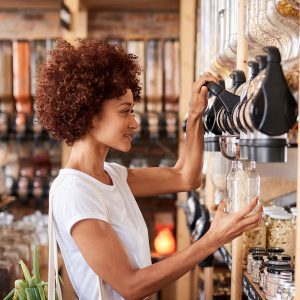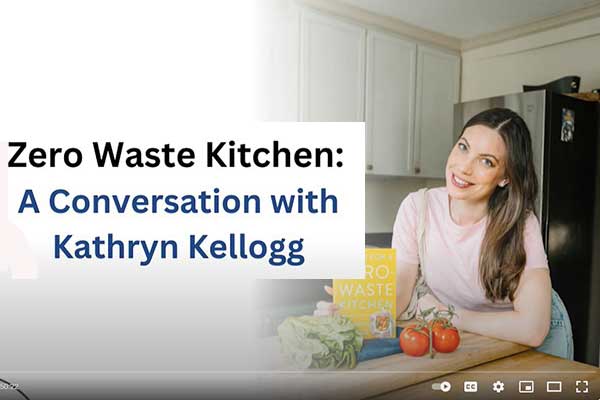Reducing household waste has benefits that go far beyond protecting Maine’s environment. Practicing zero waste gives individuals the opportunity to shop locally and support Maine’s small businesses who share our sustainability values.
That’s why NRCM is here to help! While we prioritize stopping corporate polluters who create wasteful packaging and harmful toxins in our household items, we also want to give Mainers tips about what they can do to create less waste at home and minimize their impact on the environment.
Zero Waste Retailer Map
To help Mainers use their purchasing power for a lower-waste future, NRCM collaborated with other waste reduction experts to launch a Zero Waste Retailer Map, which features dozens of Maine businesses who support less wasteful consumption through “reduce, refill, reuse, recycle and rot.”
Here’s How It Works:
Step 1: Using the map below, zoom in on your area to find retailers near you who support refill and zero waste. Businesses are sorted by category (grocery, beverage, zero waste stores, etc.).
Step 2: Click on a business to access their website, directions, and more details.*
Step 3: Help us expand this resource! Suggest other Maine businesses to be added to the retailer map here.
*The map above is updated frequently but may not reflect current store policies created due to COVID.
Why Do We Need to Reduce Waste?
The average Mainer throws away 1,260 pounds of trash each year, according to the Maine Department of Environmental Protection. This waste takes up space in Maine landfills and accelerates the impacts of climate change by emitting methane, a potent greenhouse gas, into the atmosphere. This type of “take, make, waste” social norm results in:

- Extraction and depletion of natural resources
- Wasted energy, fuel, and labor in manufacturing
- Wasted money
- Pollution of land, air and water throughout production, transportation, and disposal
What Does It Mean to be Zero Waste?
Zero waste is more about the journey than the destination. As living beings, it is simply impossible to live without making a little waste along the way. However, the goal of this movement is to increase awareness about our habits and make progress to create and consume less.
Living a low-waste or striving for a zero-waste life looks different for everyone, and Mainers have many of these practices hard-wired already. Here are some examples of how you might already be implementing zero-waste practices:
- Reusing take-out containers
- Bringing your own bags to the store
- Using a travel mug for coffee on the go
- Rinsing and repurposing glass food jars
- Buying only what you need
Other Resources to Help Reduce Household Waste
- 8 “Green” Tips for New Parents
- Going Plastic-free: My Family’s Month-long Challenge
- Tips for Reducing Waste This Holiday Season
- Upstream’s “Reuse Wins: top findings show reuse beats single-use every time”
- Maine Department of Environmental Protection’s Maine Solid Waste Generation and Disposal Capacity Report for Calendar Years 2020 & 2021
Watch our webinar: Zero Waste Kitchen — A Conversation with Kathryn Kellogg












